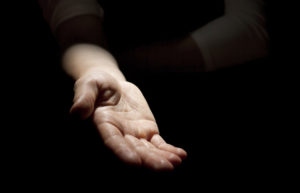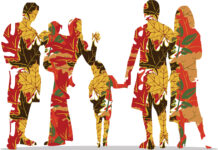Editor’s Note:
In this resource guide, originally published on the author’s website, Mad in America reader Sam Ruck (a pen name) shares the insights and methods he’s developed to support his wife’s journey as she struggles with dissociative extreme states. According to Ruck, this approach has allowed the two of them to work on healing her outside of the traditional mental health system and without drugs.
We offer it as a resource for people who wish to follow a similar approach to helping a loved one experiencing intense emotional distress.
Read the full PDF here.
















Fourteen years ago the trauma and subsequent dissociation my wife had experienced during childhood crashed into our 20-year old marriage. We were in our son’s senior year of home schooling him, and I guess it didn’t really occur to me to do anything different with her needs. We did find an alternative counselor, but as anyone suffering extreme mental distress knows, it’s a 24/7 thing, not a once-a-week-at-the-counselor’s-office thing.
But her counselor offered us a lifeline for the first 5 years while I dealt with my own issues and we developed a rhythm between us. Eventually the attachment strategies we had always leaned toward with our son and each other became the foundation of our relationship interactions on the healing journey we found ourselves upon. I always refer to this as OUR healing journey because I had to decide to own all the fallout from her trauma and dissociation lest I ‘other’ her and it become a wedge between us. Moreover, it’s OUR healing journey because I had a lot of healing and changing that I had to do before I was someone she could depend upon at all times. I studied up on attachment theory and then became much more purposeful in implementing it in our relationship, and that is when I really became a healing companion that could facilitate her healing in profound ways.
Before You Call for Help is a tiny synopsis of the highlights of our last 14 years from my perspective and how I learned to be the healing companion she could trust with her deepest fears and pain. It was only when I began to frequent Mad in America 5 years ago that I realized how I had inadvertently spared her and us so much additional trauma at the hands of the mental health system here in the States. At 30 pages it could only scratch the surface, and I’d be happy to discuss anything further if anyone finds something of value in it for their situation.
Sam
Report comment